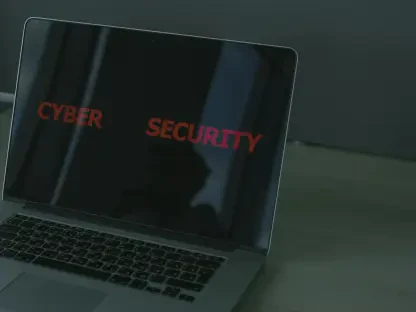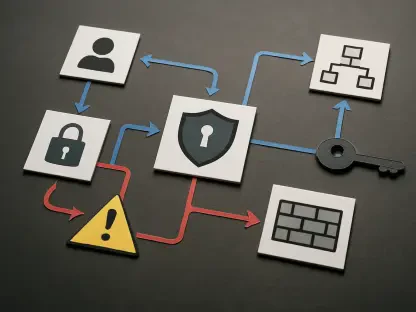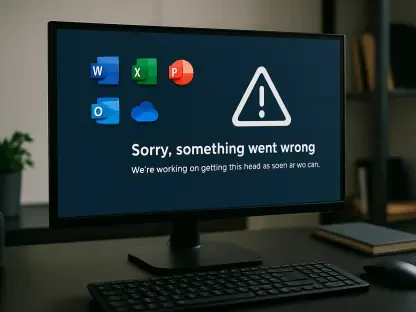The world of indie game development is fraught with challenges, from limited budgets to fierce competition. However, one unexpected hurdle that developers may face is the interference of antivirus software. This issue came to light with the experience of Shiromofu Factory, a Japanese indie game developer, whose game Dungeon Antiqua was wrongly flagged as a virus and blocked on Steam.
The Initial Success and Sudden Setback
A Promising Start
Dungeon Antiqua, a retro-inspired dungeon crawler, was released on October 10, 2024, and quickly garnered positive reviews on Steam. Paying homage to classic titles like early Final Fantasy and Wizardry games, the developers, Shiromofu Factory, successfully captured a nostalgic essence through its engaging gameplay. Characters are leveled up by battling monsters, and fans of the genre responded enthusiastically. Achieving a “Very Positive” status on Steam, Dungeon Antiqua indicated strong community approval, propelling the game toward a promising future.
The Unexpected Problem
However, the game’s journey took a troubling turn following a December 6 update. Users began reporting that antivirus programs such as Norton, Avast, and McAfee were flagging Dungeon Antiqua as a virus. This sudden misidentification severely impacted the game’s distribution and sales on Steam, creating a significant obstacle for the developer. Going by the username “frenchbread,” the developer experienced an immediate crisis situation. Their efforts to address the issue were stymied by multiple antivirus programs, all seemingly convinced that the game was malicious software. Despite enjoying early success, Dungeon Antiqua was suddenly unable to reach its audience, leading to significant distress and uncertainty for its creator.
Identifying the Root Cause
The Role of the Pyxel Game Engine
The core issue was eventually traced back to the Pyxel game engine, a critical component used in Dungeon Antiqua’s development. The Pyxel engine operates by using Python and Pyinstaller to create executable files. Unfortunately, antivirus programs often misinterpret files generated by Pyinstaller as Trojan viruses due to behavioral similarities. This pattern, which sees executable files flagged as potential threats, seemingly entrapped Dungeon Antiqua in a cycle of false positives. The developer found themselves needing to thoroughly understand the intricacies of how antivirus software identifies threats to navigate potential resolutions. Realizing that antivirus programs could misinterpret their game by association was a pivotal moment that guided their subsequent actions.
Temporary Solutions and Steam’s Block
In response to this crisis, frenchbread advised users to manually exempt Dungeon Antiqua’s executable file from their antivirus scans. This ad-hoc solution, however, offered only temporary relief. On December 12, the situation escalated further when Steam blocked the game due to recurring virus reports. Faced with this new blockade, the developer requested Steam to revert to a previous version of Dungeon Antiqua, temporarily re-enabling its purchase. However, this solution was not sustainable as it prevented the implementation of future updates and improvements. Maintaining player engagement and the game’s development trajectory was now at odds with navigating antivirus software issues, presenting the developer with a particularly challenging dilemma.
Troubleshooting and Persistent Challenges
Methodical Troubleshooting Efforts
Determined to resolve the issue, frenchbread embarked on a series of methodical troubleshooting efforts aimed at eliminating the false virus detections. One of the initial steps involved purchasing Norton Antivirus to perform personal testing and gain insights from within. They even experimented with constructing the bootloader themselves, given that default bootloaders often arouse antivirus suspicion. Despite these proactive measures, antivirus programs continued to flag the game as malicious. This led the developer to explore multiple methodologies, including contacting antivirus companies and submitting false-positive reports. Nevertheless, all steps taken seemed insufficient to alleviate the issue permanently.
Financial and Technical Hurdles
Among the strategies explored by frenchbread was the acquisition of a code signing certificate. This could have signaled to antivirus programs that the game was from a verified source. However, the financial unfeasibility of obtaining such a certificate posed another barrier for the indie developer. Venturing back into the game’s code, they identified the Python “os.remove()” function used for deleting local save data files as a contributor to the false positives. Replacing this function with a less suspicious workaround aimed at reducing antivirus alert triggers did not ultimately solve the persistent problem. Despite ongoing adjustments and exhaustive measures, the antivirus software’s memory of the original flagged files continued to impede progress.
The Unconventional Solution and Broader Implications
A Creative Fix
The turning point in this saga came through an unconventional solution that would seem trivial in other circumstances. By flipping the game’s file image, featuring a fairy, 180 degrees, the developer managed to deceive the antivirus programs. This minor yet creative tweak allowed Dungeon Antiqua to pass antivirus checks, enabling updates once again. This unexpected solution underscored the nuanced understanding and adaptive problem-solving required in indie game development. The fairy image’s inversion was enough to distinguish the updated game files from previously flagged versions, thus breaking the cycle of incorrect threat identifications and allowing development efforts to resume unabated.
Reflections on the Ordeal
Reflecting on this grueling ordeal, frenchbread described the antivirus interference as the most challenging aspect of Dungeon Antiqua’s development journey. The developer expressed acute frustration over how antivirus software had the substantial power to designate a developer’s labor of love as malware, subsequently obstructing its dissemination and sales. This experience revealed inherent vulnerabilities within the indie game development process, where creators must contend with factors beyond their control. The broader implications resonate deeply, highlighting the pervasive influence antivirus software can have in shaping the success or failure of independently developed games.
Broader Issues in the Indie Game Development Community
The Influence of Antivirus Software
This narrative underscores a critical issue within the game development community regarding the influence and potential overreach of antivirus software. The story of Dungeon Antiqua reveals just how vulnerable developers are to misinterpretations by security programs. The severe disruptions encountered underscore the intricate and often costly measures developers must take to ensure their work reaches players without falling victim to unjust security restrictions. Additionally, it compels a reevaluation of how antivirus software categorizes emerging technologies, urging better accuracy and consideration of the indie gaming sector’s unique dynamics and challenges.
Systemic Challenges and Financial Constraints
Shiromofu Factory’s ordeal enriches ongoing conversations surrounding the broader systemic challenges frequently encountered by independent game developers. Steam’s policies and the hurdles posed by advanced programming safeguards can impose significant barriers. Furthermore, the often prohibitive costs associated with ensuring a game’s trustworthy status through measures like code signing certificates cannot be overlooked. Creators operating on narrow budgets face disproportionate obstacles, necessitating innovative yet reliable solutions amid financial constraints. These compounding factors emphasize the importance of industry support and adaptable frameworks to aid indie developers in overcoming these multifaceted hurdles.
Conclusion
The realm of indie game development is riddled with obstacles, ranging from tight budgets to stiff competition. However, an unanticipated challenge that indie developers might encounter is interference from antivirus software. This often-overlooked issue was spotlighted by the experience of Shiromofu Factory, a Japanese indie game studio. Their game, Dungeon Antiqua, was mistakenly identified as malware by antivirus programs and subsequently blocked on Steam, a major platform for distributing indie games.
For indie developers, gaining traction and visibility is already an uphill battle, and when antivirus software falsely flags their games, it adds another layer of difficulty. Such incidents can erode trust in their games, leading to potential financial losses and reputational damage. It’s crucial for indie developers to ensure their software passes all necessary checks and is correctly categorized, but they also depend on antivirus companies to accurately assess their products. Collaborative efforts between developers and antivirus companies could help minimize these disruptions, allowing creative indie games to reach and be enjoyed by a wider audience without undue hindrances.









